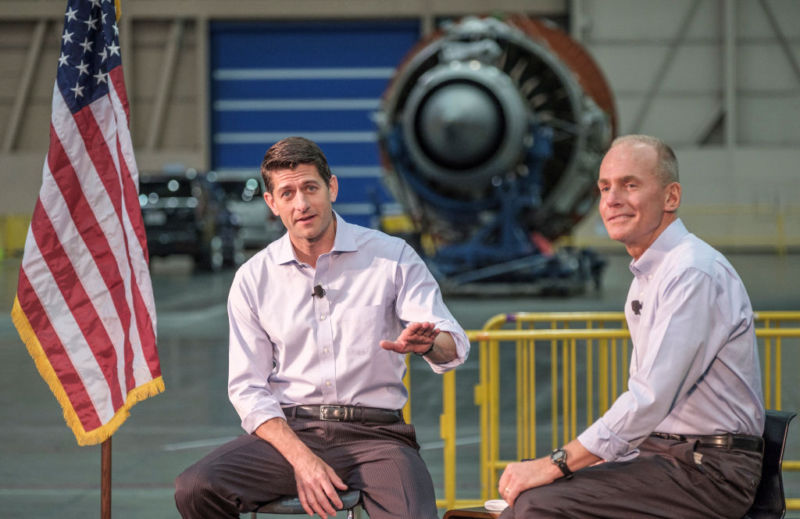
It was about a year ago that Boeing Chief Executive Dennis Muilenburg first began saying his company would beat SpaceX to Mars. "I'm convinced that the first person to step foot on Mars will arrive there riding on a Boeing rocket," he said during a Boeing-sponsored tech summit in Chicago in October 2016.
On Thursday, Muilenburg repeated that claim on CNBC. Moreover, he added this tidbit about the Space Launch System rocket—for which Boeing is the prime contractor of the core stage—"We’re going to take a first test flight in 2019 and we’re going to do a slingshot mission around the Moon."
Unlike last year, Muilenburg drew a response from SpaceX this time. The company's founder, Elon Musk, offered a pithy response on Twitter: "Do it."
The truth is that Boeing's rocket isn't going anywhere particularly fast. Although Muilenburg says it will launch in 2019, NASA has all but admitted that will not happen. The rocket's maiden launch has already slipped from late 2017 into "no earlier than" December 2019. However, NASA officials have said a 2019 launch is a "best case" scenario, and a slip to June 2020 is more likely.
Et tu, commercial crew?
Boeing also isn't going to land a rocket on Mars without near total funding from NASA, which has already paid more than $10 billion for development of the SLS and has no actual funding to implement a humans-to-Mars exploration plan. SpaceX will also need some government funding if it is to develop its "Big Falcon Rocket" to reach Mars, but Musk has laid out plans for commercial applications of his launch system that could offset some of its cost. (The SLS rocket has no known customers aside from NASA).
What is particularly puzzling to us is why Boeing and SpaceX are arguing about Mars. These two companies, who compete directly for NASA and other government contracts, are in a far more immediate and real race to reach the launch pad in the commercial crew competition. NASA has had to rely on Russia to get its astronauts to the International Space Station since the space shuttle's retirement in 2011. Both Boeing and SpaceX are building capsules that will launch crews from Florida.
The companies have both seen slips in their schedules for the first crewed flights. They have launch dates now set for 2018, but there is a general expectation that further delays are likely—both due to development problems and changing requirements from NASA. Regardless, the company that eventually breaks NASA's Russian dependence will win a public relations boon beyond compare for an aerospace company.
"Do it," we say to Dennis and Elon.
reader comments
358